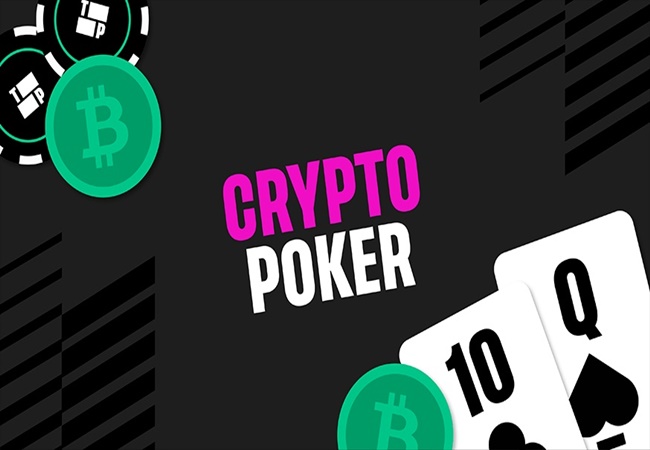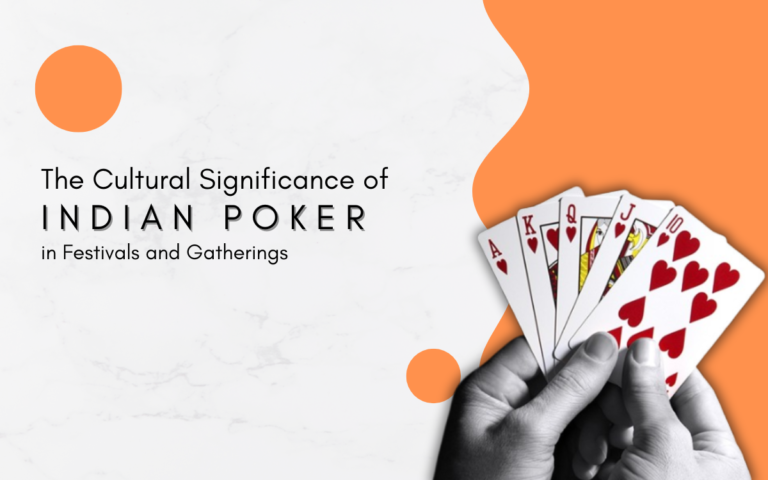Crypto and Poker: How Blockchain Is Transforming the Game
The rise of blockchain technology has reshaped numerous industries — from finance to supply chains — and the world of online poker is no exception. As cryptocurrencies gain widespread acceptance and blockchain-based platforms mature, poker is undergoing a quiet revolution. This digital transformation is not just about using Bitcoin to fund poker accounts; it’s about rethinking the entire infrastructure of the game — from security to transparency, fairness, and player control, similar to innovations seen in the Best Rummy game platforms.

The Current State of Online Poker
Online poker has exploded in popularity over the last two decades, bringing millions of players from around the world to virtual tables, including platforms like Teen Patti Stars. However, traditional online poker platforms are centralized, meaning a single company controls the software, game logic, player funds, and random number generation (RNG). This structure creates several long-standing issues:
- Lack of transparency: Players must trust that the house is fair and that the cards are dealt honestly.
- Fund security risks: Players’ funds are stored by the operator, which can result in issues like withdrawal delays, fund seizures, or even insolvency.
- Regulatory friction: Jurisdictional issues and banking limitations can restrict access or cause complications for users in certain countries.
- High fees and slow payouts: Many sites charge hefty rake fees and offer slow or limited withdrawal options.
Enter blockchain technology — a solution uniquely equipped to solve many of these pain points.
Decentralization and Trustlessness
At the heart of blockchain’s impact on poker is decentralization. A decentralized poker platform runs on a blockchain or uses smart contracts to automate game mechanics and transactions. This eliminates the need for players to trust a central operator.
With blockchain-based poker, game outcomes can be determined by provably fair algorithms that are transparent and verifiable by all participants. This builds trust through code, rather than relying on third-party assurances, making it especially valuable for poker affiliate networks promoting fair play.
For example, in a traditional poker site, players have no way to verify the integrity of the card shuffle. But on a blockchain platform, the shuffle algorithm and seed values can be made public and auditable, allowing players to confirm that no manipulation has occurred.
Cryptocurrency Integration: Instant and Borderless Payments
One of the most tangible ways crypto is transforming poker is through instant payments using cryptocurrencies like Bitcoin (BTC), Ethereum (ETH), or stablecoins like USDT and USDC.
Using crypto offers several advantages:
- Fast deposits and withdrawals: Crypto transactions settle in minutes, bypassing traditional banking delays.
- Global access: Players from regions with restricted banking systems or limited access to online poker can participate freely.
- Lower fees: With no intermediaries like banks or payment processors, crypto transactions often incur minimal fees.
- Enhanced privacy: Many crypto poker platforms allow pseudonymous play, which can be appealing for users seeking discretion.
These features are especially relevant in countries where online gambling is heavily restricted or where banking infrastructure is underdeveloped.

Smart Contracts: Automation and Fair Play
Smart contracts are self-executing programs that run on blockchains. In poker, they can be used to:
- Handle buy-ins and payouts automatically
- Ensure prize pools are distributed fairly and instantly
- Lock funds during games to prevent cheating or early withdrawals
- Enforce game rules and betting limits without human oversight
This removes the need for human intervention or trust in a site administrator. Online poker players can be assured that if they win, the payout is automatic and cannot be tampered with.
Smart contracts also enable autonomous poker rooms — platforms that run entirely on decentralized infrastructure. Projects like Virtue Poker, PokerFi, and CoinPoker are experimenting with such models, aiming to reduce operational costs while increasing player confidence.
Provably Fair Gaming
“Provably fair” is a concept unique to crypto gaming. It means that players can independently verify the fairness of each hand or game result.
In poker, this can be implemented through cryptographic techniques like:
- Commit-reveal schemes: In online poker, players and the platform commit to random seeds in advance, and the combination determines the card shuffle.
- Zero-knowledge proofs: Mathematical proofs that demonstrate the validity of a shuffle or game result without revealing sensitive data.
By combining these techniques, blockchain platforms can offer poker experiences that are verifiably fair, incorporating advanced poker strategy and countering skepticism from players who suspect foul play on centralized sites.
Tokenization and Incentives
Many blockchain-based poker platforms also introduce native tokens that serve multiple purposes:
- Rewarding player activity (e.g., rakeback in tokens)
- Offering governance rights (token holders vote on platform updates or game rules)
- Staking for rewards or access to special tournaments
- Reducing transaction fees
In online poker, this gamification and financialization of the poker experience add another layer of engagement. Some platforms even allow players to stake tokens and earn passive income, blending poker with decentralized finance (DeFi) principles.
NFTs and Digital Identity
Though still in its early stages, some online poker platforms are experimenting with NFTs (non-fungible tokens) to represent unique player identities, avatars, or even tradable in-game assets like custom card decks or virtual tables.
NFT-based identity systems can also help with:
- Reputation scoring: Players with strong win records or fair play histories can build a verifiable digital reputation.
- Cross-platform recognition: A player’s profile can be portable across multiple games or platforms.
- Exclusive access: Holding specific NFTs may grant entry to private tables, elite tournaments, or loyalty programs.
Challenges and Concerns
Despite its promise, crypto online poker still faces several challenges:
- User onboarding: Many players are unfamiliar with blockchain wallets, seed phrases, and crypto transactions.
- Volatility: The value of crypto assets can fluctuate wildly, which affects bankroll management and game economics.
- Regulation: Regulatory uncertainty looms large, with different countries having conflicting stances on both online gambling and crypto.
- Scalability: Blockchain networks can experience congestion, leading to high fees or delayed game processing.
- Security: Smart contract bugs or poorly designed systems can be exploited by hackers.
Solving these issues requires collaboration between poker developers, blockchain experts, and regulators to strike a balance between innovation and safety.
The Future of Poker on the Blockchain
As the technology matures, the synergy between crypto and online poker is expected to deepen. Here’s what the future may hold:
- Fully decentralized poker DAOs (Decentralized Autonomous Organizations) where players govern the platform collectively.
- Hybrid platforms that combine the trustless benefits of blockchain with the UX of traditional poker rooms.
- Layer-2 scaling solutions (like Optimism or Arbitrum) that reduce fees and latency.
- Cross-chain interoperability, allowing players to use multiple cryptocurrencies and assets across different ecosystems.
- AI-driven risk monitoring integrated into smart contracts to flag suspicious behavior instantly.
In many ways, blockchain is returning poker to its roots: a game built on skill, trust, and transparency — only now, it’s being done on a global, digital scale.
Conclusion
The convergence of online poker and blockchain is more than a passing trend—it represents a growing global trend reshaping the future of online gaming. It represents a fundamental shift in how the game is played, trusted, and monetized. With decentralization, provably fair mechanics, and crypto-powered payments, blockchain poker promises a more secure, accessible, and engaging experience for players worldwide. While there are hurdles to overcome, the momentum is undeniable — and the stakes have never been higher.








